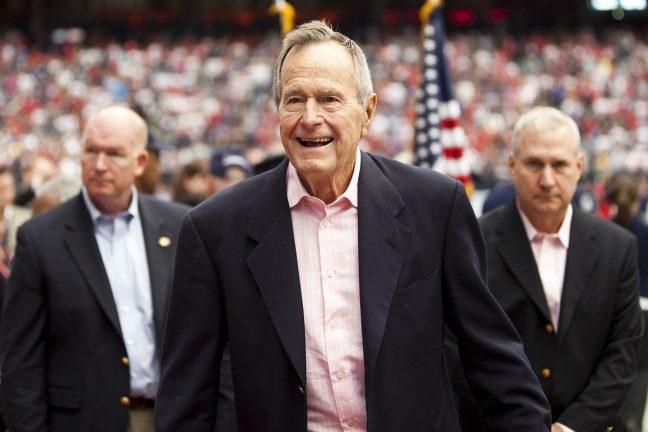Tomorrow, the U.S. Postal Service will not be delivering mail. Nearly all federal offices will be closed, along with other public institutions in certain states all because one man has died.
Dec. 5, 2018 has been declared a National Day of Mourning in honor of President George H.W. Bush, who passed away last week at the age of 94. So according to federal policy, we are expected to stop everything we’re doing to mourn a man many of us have never met. Why?
Certainly, it makes sense to allow those related to the late Bush Sr., as well as those near and dear to the family to commemorate someone who touched their lives dearly. But for the rest of the nation — or at least the average American — who are mourning a man they may not know much about, I caution you to question if this is appropriate.
Even his son, Jeb Bush, recognizes this as a time to celebrate the man rather than grieve their loss. So to the rest of America, what exactly are you celebrating?
History shows us how former U.S. presidents are often memorialized in ways that cause the country to unite while stopping in its tracks. When George Washington died, for example, the nation mourned for 69 days and a presidential proclamation was passed for the American people to wear black armbands.
These actions have set the tone for years to come, but is it fair to assume each of these men deserved such commemoration?
While it is important to recognize that no U.S. president, or world leader for that matter, will have an absolutely clean record, what should be the tipping point between the balance of the good and bad choices they make?
Historical narratives are often altered by those in power. But as most mainstream media outlets tell tales of the positive life the former president lived, I will not stand idly by and watch the rest of his story be erased.
The day after Bush Sr. died, and many were hearing the news for the first time, also marks the annual celebration of World AIDS Day established due to the HIV/AIDS epidemic formed in part by his administration.
Instead of addressing the epidemic when there was crucial work to be done, they reduced funding for AIDS research and those afflicted with the disease were barred from entering the country. Though the reasons may vary, the intention is unchanged.
Voices on social media are also bringing attention to the war crimes he’s committed, including the systematic attack of civilians in Iraq, Iran-Contra crimes and the war on drugs still being fought today.
By no means does this list equate to all the harm he caused while in power, but I choose these specific examples in order to make it known that many innocent individuals have died or may be more susceptible to death at the hands of his decision-making.
While tomorrow is meant to mourn, or honor, the former president who committed such acts, I will be spending my day learning more about his story while I pay homage to the thousands, even millions, of individuals he harmed along the way.
The world doesn’t just stop when an ordinary person dies, so why is it so different for certain individuals simply because they held a title of prestige at one point in their life?
Politicians should follow Pocan’s lead in standing against Saudi Arabian actions in Yemen
To my fellow Americans reading this — we cannot simply sit by and continue to mourn those that are gone without recognizing the entirety of who they are as a person and what they may have done to impact others along the way, whether this impact be positive, negative or a balancing act of both.
It’s only been a short 25 years since the former president left office, yet the crimes he committed have been quickly forgotten and may soon be erased. This perpetuated cycle of patriarchy leads to nothing more than a whitewashed version of history which prevents those who learn from such events later on to gain perspective on the full story — the true story. History is doomed to repeat itself when we do not take time to learn the truth, so I wonder what story will be told on behalf of the legacy of President Donald Trump once he’s passed.
Even 25 years from today, how will people remember the current times we are living through if an end to this cycle is nowhere in sight?
Tolu Igun (tigun@badgerherald.com) is a senior majoring in psychology and philosophy.


